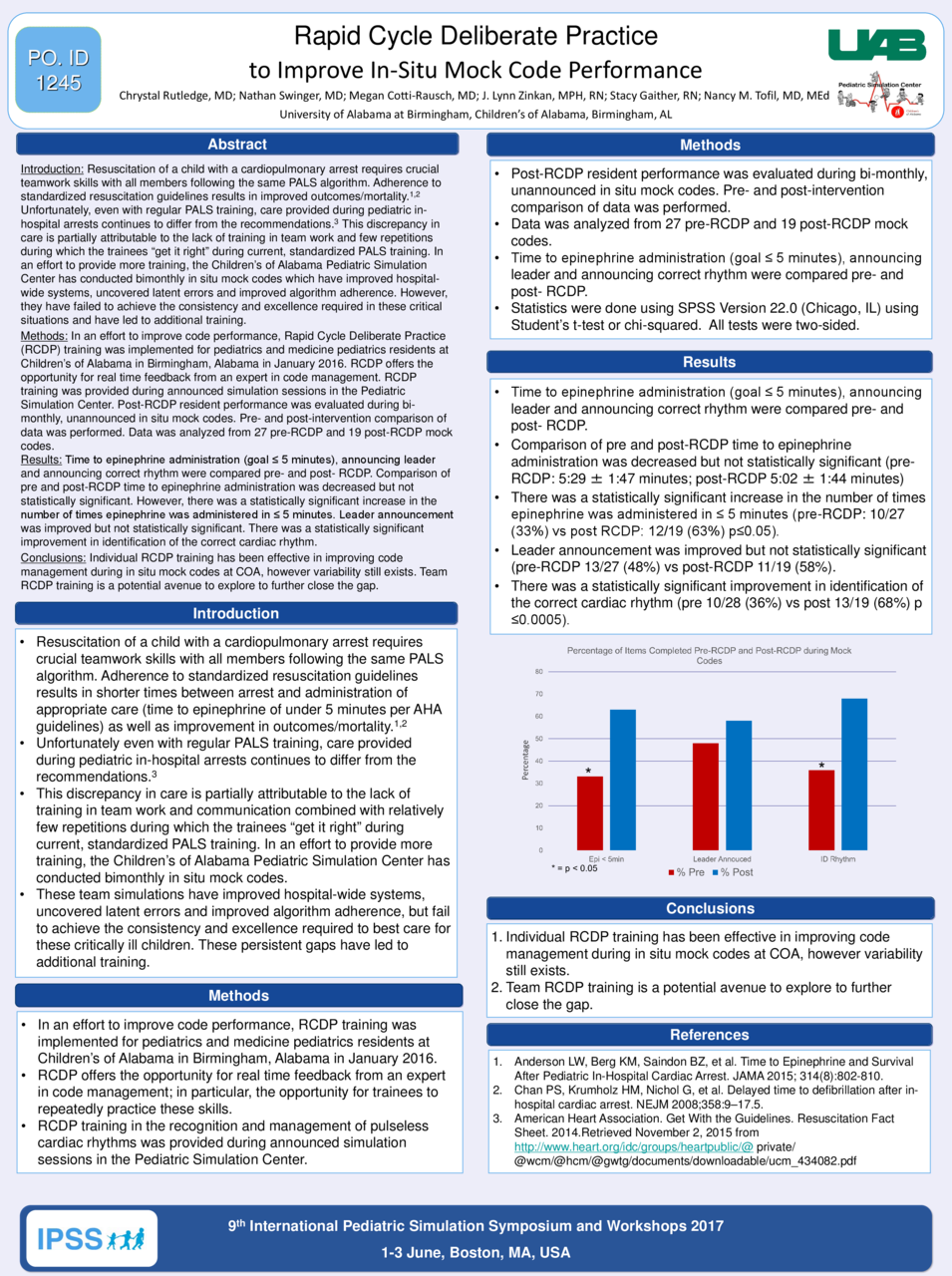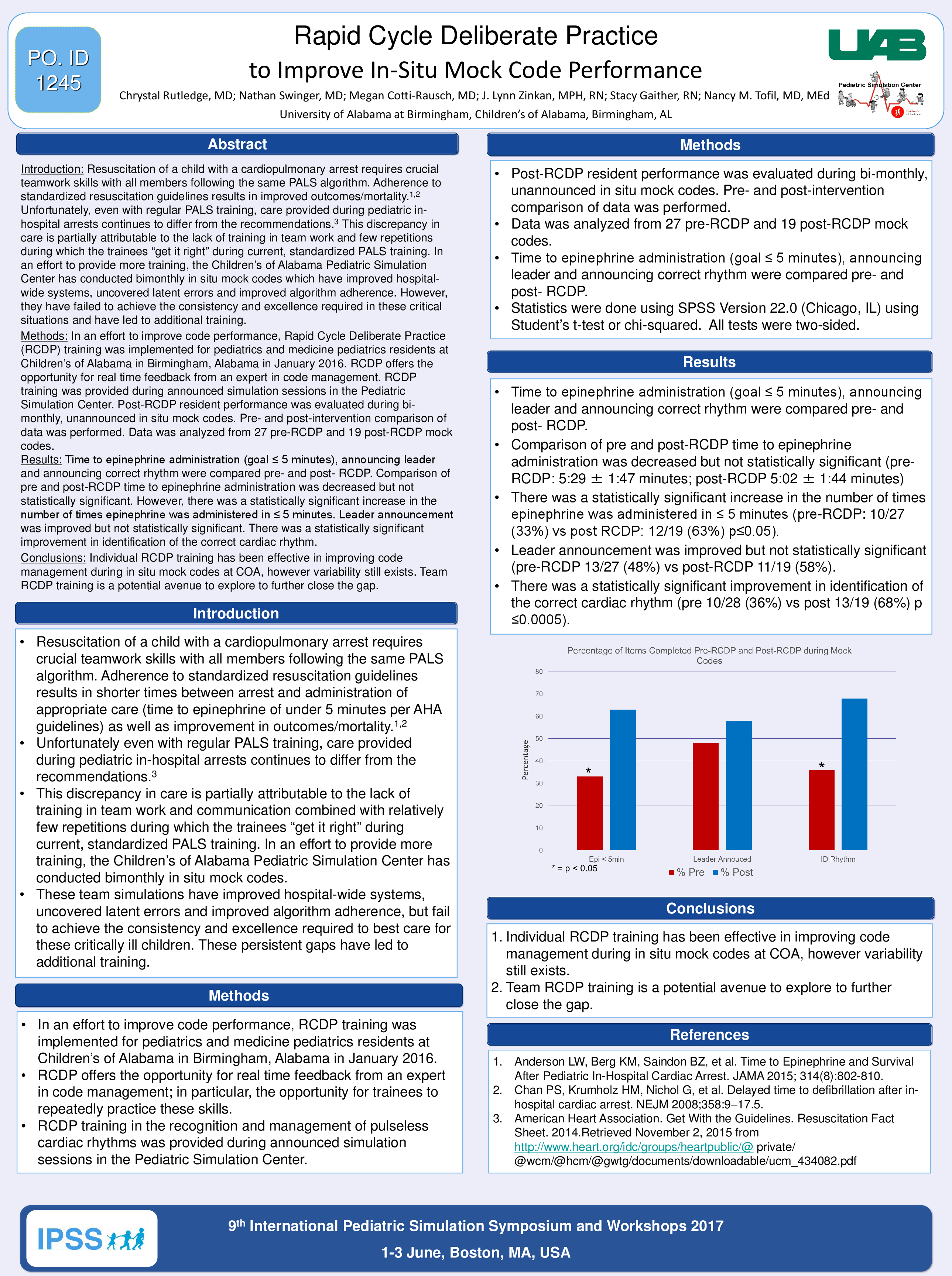Abstract
Introduction: Resuscitation of a child with a cardiopulmonary arrest requires crucial teamwork skills with all members following the same PALS algorithm. Adherence to standardized resuscitation guidelines results in improved outcomes/mortality.1,2 Unfortunately, even with regular PALS training, care provided during pediatric in-hospital arrests continues to differ from the recommendations.3 This discrepancy in care is partially attributable to the lack of training in team work and few repetitions during which the trainees “get it right” during current, standardized PALS training. In an effort to provide more training, the Children’s of Alabama Pediatric Simulation Center has conducted bimonthly in situ mock codes which have improved hospital-wide systems, uncovered latent errors and improved algorithm adherence. However, they have failed to achieve the consistency and excellence required in these critical situations and have led to additional training.
Methods: In an effort to improve code performance, Rapid Cycle Deliberate Practice (RCDP) training was implemented for pediatrics and medicine pediatrics residents at Children’s of Alabama in Birmingham, Alabama in January 2016. RCDP offers the opportunity for real time feedback from an expert in code management. RCDP training was provided during announced simulation sessions in the Pediatric Simulation Center. Post-RCDP resident performance was evaluated during bi-monthly, unannounced in situ mock codes. Pre- and post-intervention comparison of data was performed. Data was analyzed from 27 pre-RCDP and 19 post-RCDP mock codes.
Results: Time to epinephrine administration (goal ≤ 5 minutes), announcing leader and announcing correct rhythm were compared pre- and post- RCDP. Comparison of pre and post-RCDP time to epinephrine administration was decreased but not statistically significant. However, there was a statistically significant increase in the number of times epinephrine was administered in ≤ 5 minutes. Leader announcement was improved but not statistically significant. There was a statistically significant improvement in identification of the correct cardiac rhythm.
Conclusions: Individual RCDP training has been effective in improving code management during in situ mock codes at COA, however variability still exists. Team RCDP training is a potential avenue to explore to further close the gap.






